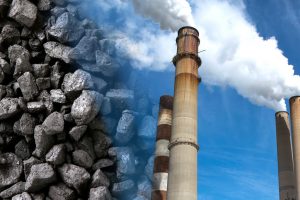
The new Panasonic electric vehicle battery plant being constructed in Kansas, the one that Oklahoma attempted to land but failed last year, reportedly will require so much energy that a nearby coal-fired electric generating power plant will not only remain open but be expanded.
The $4 billion EV battery plant is being built in De Soto, a suburb of Kansas City and is expected to begin mass production of batteries by the end of March 2025.
Here’s the catch. The plant will require so much energy for its operations that a local coal-fired plant will be expanded and the life of the plant will be extended.
This massive EV battery factory will require enormous amounts of power. So much energy, in fact, that a coal-fired plant in Lawrence, one owned by Evergy, will be expanded and the life of the plant will be extended. The EV battery factor will require close to 250 megawatts of electricity.
The Kansas City Star reported that Evergy had original plans to shut down the coal-fired Unit 4 at the Lawrence Energy Center and do so later this year or early next year. But now the company, with 1.6 million customers in Kansas and Missouri, has moved to extend the life of the coal plant until 2023, then convert Unit 5 to gas to provide the power.
“The demand created by the nearly 4-million-square-foot plant in Johnson County is expected to double that of Evergy’s current largest customer in the state and require two new substations, upgrades to three current substations and work on 31 miles of transmission lines,” according to a statement by Evergy.
One company executive, Kayla Messamore who is Evergy’s vice president of strategy and long-term planning recently told the Kansas Corporation Commission that the new Panasonic plan will raise “near-term challenges from a resource adequacy perspective.”
Meaning, Evergy can’t provide enough electricity without use of fuels that most environmentalists don’t want.
“Beyond the sheer magnitude of load and load factor, Panasonic’s construction schedule, and, in turn, its energy needs, are being planned on a very aggressive schedule,” Messamore said. “With energy needs starting to ramp in 2024 and full load requirements by 2026, there is urgency to procure capacity and energy to fulfill the expected energy usage schedule.”
Evergy attempted to obtain approval of a rate hike from the Kansas Corporation Commission but regulators rejected the request.
Panasonic is fully aware of the demands its huge plant will present for Evergy.
“Panasonic is making a significant investment in upgrading Evergy’s infrastructure to be able to serve the factory, and we will pay for all costs immediately attributable to our operations,” said Carl Walton – Panasonic Energy of North America’s vice president of strategic initiatives and facilities.
Source: The Blaze





